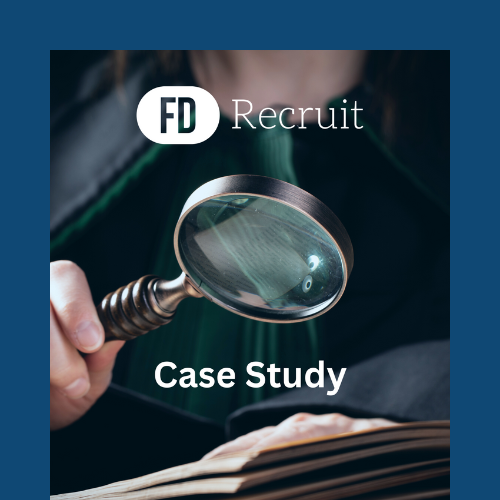Presentations topics for later interview stages
When interviewing candidates for Finance Director and CFO positions, standard interview techniques may not fully reveal their potential to steer an organisation's financial success. Here, we explore why it is advantageous to include formal presentations when interviewing Finance Directors and CFOs.
Download Presentation QuestionsElevating Interviews for Finance Directors and CFOs: Harnessing the Power of Formal Presentations
When interviewing candidates for Finance Director and CFO positions, standard interview techniques may not fully reveal their potential to steer an organisation’s financial success.
To gain deeper insights and unlock the true capabilities of finance leaders, incorporating formal presentations into the interview process becomes invaluable.
Why it is advantageous to include formal presentations when interviewing Finance Directors and CFOs.
1. Showcasing Strategic Communication Skills
Formal presentations provide a unique opportunity for Finance Director and CFO candidates to demonstrate their strategic communication abilities. Effective communication is paramount for finance leaders to convey complex financial information to diverse stakeholders, including board members, executives, and investors. Presenting financial analysis, forecasts, and strategic recommendations in a clear and concise manner reveals a candidate’s proficiency in articulating financial concepts and influencing decision-making processes.
2. Assessing Confidence and Composure in High-Stakes Scenarios
Finance Directors and CFOs often face high-pressure situations that demand confidence and composure. Incorporating formal presentations during interviews allows candidates to showcase their ability to handle such scenarios. Public speaking can be daunting, but candidates who can deliver a compelling presentation with confidence and grace demonstrate their readiness to navigate critical financial discussions. Observing their demeanour during presentations provides insights into their poise, self-assurance, and adaptability to the demands of financial leadership roles.
3. Evaluation of Financial Acumen and Problem-Solving Skills
Formal presentations offer an ideal platform to assess a candidate’s financial acumen and problem-solving capabilities. Assigning candidates with financial scenarios or complex challenges during their presentation allows employers to gauge their ability to analyse data, identify risks and opportunities, and propose sound financial strategies. The presentation format encourages candidates to think critically, make data-driven decisions, and showcase their problem-solving aptitude—an essential trait for finance leaders in guiding organisations towards financial success.
4. Demonstrating In-Depth Industry Knowledge
Finance Directors and CFOs need a comprehensive understanding of their industry’s financial landscape to effectively drive strategic decision-making. Incorporating formal presentations enables candidates to exhibit their industry-specific knowledge and expertise. Through their presentation content, candidates can demonstrate a deep understanding of financial regulations, market trends, industry-specific challenges, and opportunities. This demonstration underscores their commitment to staying updated on industry developments and their potential to make informed financial decisions that align with the organisation’s objectives.
5. Assessing Strategic Planning and Organisational Skills:
Finance leaders must possess exceptional planning, organisation, and time management skills to handle complex financial operations. The preparation of a formal presentation necessitates careful planning, resource allocation, and structuring of financial information. By requesting candidates to deliver a presentation, employers can assess their ability to strategically organise financial data, communicate key insights, and deliver within time constraints. Attention to detail, effective resource utilisation, and the ability to manage financial projects can be observed through the presentation process, providing crucial insights into a candidate’s planning and organisational skills.
The Timing of the Presentation in the Interview Process.
A crucial aspect of the interview process that demands careful consideration is when to ask candidates to deliver a case study presentation. Based on extensive research into past FD & CFO assignments, organisations that request a candidate to deliver a prepared presentation at their first interview see dropout rates double. It is, in fact, vital to delay this request until the later stages of an interview for several compelling reasons:
1. Respect for Candidates’ Time
Candidates invest a significant amount of time and effort into preparing for job interviews. Springing a case study presentation on them too early in the process can be discouraging and may make them feel like their time isn’t being respected especially when they already have demanding jobs. By saving this step for later in the interview process, employers demonstrate consideration for the candidates’ commitments and responsibilities.
2. A Comprehensive Assessment
Interviews serve a dual purpose: to evaluate candidates’ qualifications and to provide candidates with an opportunity to assess the company’s culture and values. Rushing into a case study presentation prematurely can overshadow these objectives. Later in the interview process, employers have had the chance to gauge a candidate’s suitability for the role more thoroughly, which can help tailor the presentation topic to their specific strengths and challenges.
3. Reduced Stress and Anxiety
Case study presentations can be nerve-wracking experiences for candidates. Placing this task toward the end of the interview process allows candidates to build rapport with the interviewers, gain a better understanding of the company’s expectations, and feel more at ease. As a result, they are more likely to deliver a well-prepared and confident presentation.
4. Focus on Core Competencies
Earlier stages of interviews are typically designed to assess a candidate’s core qualifications, skills, and cultural fit. Waiting to introduce the case study presentation allows employers to first confirm that the candidate meets these fundamental criteria. This ensures that the case study assessment is conducted on a foundation of suitability for the role.
5. Better Evaluation of Soft Skills
During the early interview stages, candidates may be more focused on conveying their technical abilities. However, by postponing the case study presentation, interviewers can pay closer attention to a candidate’s soft skills, such as communication, problem-solving, and adaptability, which are often better demonstrated in a real-world case study scenario.
6. Tailored Evaluation
Every role is unique, and a one-size-fits-all case study may not effectively assess a candidate’s potential contributions to a particular position. By conducting case study presentations later in the process, employers can customize scenarios to better align with the role’s responsibilities and challenges, leading to a more accurate evaluation.
Summary
Incorporating formal presentations into the interview process for Finance Directors and CFOs elevates the assessment of their potential contributions. It provides an avenue for candidates to showcase their strategic communication skills, confidence, financial acumen, problem-solving abilities, industry knowledge, and planning expertise. Through presentations, employers gain deeper insights into a candidate’s capabilities, enabling more informed hiring decisions when selecting finance leaders who can drive financial performance and contribute to organizational growth.
Delaying the request for a presentation until the later stages of an interview is a strategic move that benefits both employers and candidates. It fosters a respectful and considerate interview process, allows for a more comprehensive assessment, reduces stress for candidates, lowers dropout rates and ensures that the evaluation is tailored to the specific needs of the role.






